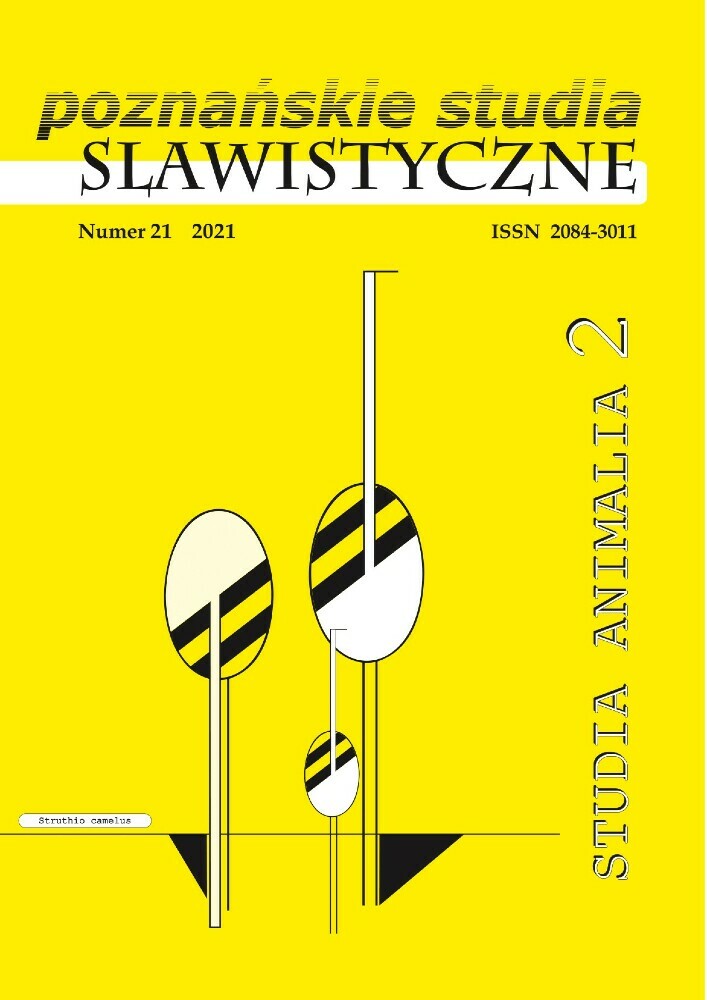Abstract
Animal motifs were very popular in medieval bestiaries and love poetry, especially in Provençal and Petrarchan poetry. Afterwards they spread throughout European Renaissance love poetry and they are found in love poems by Šiško Menčetić (1457–1527) and Džore Držić (1461–1501), the very first Croatian Renaissance poets. This paper examines some of the animal motifs present in their poems, in order to establish whether they could provide a better understanding of the luralism of Croatian Renaissance love poetry, which cannot be reduced to Petrarchism alone, and of the extraliterary context to which certain animal motifs are related. Our research shows that e.g. motifs of snakes and birds are linked to various types of love discourse; animal motifs related to the topos of love hunt are also analysed. It is shown that animal motifs are potentially polysemous and that their usage follows conventions of the genre and norms of a particular type of love discourse with which they are associated, while their meaning is more precisely defined
in the context of the poem.
References
Baxter, R. (1998). Bestiaries and Their Users in the Middle Ages. Stroud: Sutton.
Bergman, Ch. (2011). A Spectacle of Beasts: Hunting Rituals and Animal Rights in Early Modern England. U: A Cultural History of Animals in the Renaissance. Ed. B. Boehrer, Oxford–New York: Berg, str. 53–74.
Boehrer, B. (2011). Introduction: The Animal Renaissance. U: A Cultural History of Animals in the Renaissance. Ed. B. Boehrer. Oxford–New York: Berg, str. 1–26.
Bogdan, T. (2006). Pluralnost hrvatske ljubavne lirike 15. i 16. stoljeća. U: Čovjek, prostor, vrijeme. Književnoantropološke studije iz hrvatske književnosti. Ur. Ž. Benčić, D. Fališevac. Zagreb: Disput, str. 57–80.
Bogdan, T. (2012). Ljubavi razlike. Tekstualni subjekt u hrvatskoj ljubavnoj lirici 15. i 16. stoljeća. Zagreb: Disput.
Cavalcanti, G. (2011). Rime. Prir. R. Rea, G. Inglese. Rim: Carocci. Curtius, E. R. (1971). Evropska književnost i latinsko srednjovjekovlje. Prev. S. Markuš. Zagreb: Matica hrvatska.
Držić, Dž. (1965). Pjesni ljuvene. Prir. J. Hamm. Zagreb: JAZU.
Guinizzelli, G. (2002). Rime. Prir. L. Rossi. Torino: Einaudi.
Hassig, D. (1997). Marginal Bestiaries. U: Animals and the Symbolic in Mediaeval Art and Literature. Ed. L. A. J. R. Houwen, Groningen: Egbert Forsten, str. 171–188.
Treska Husić, S. (2008). Životinjske figure u talijanskoj književnosti srednjega vijeka. [Doktorska disertacija]. Zagreb: Sveučilište u Zagrebu.
Kreković, P. (1908). Najstarija hrvatska lirika. „Nastavni vjesnik” br. XVI, str. 241– 259, 329–339, 401–411, 481–489.
Kurtović, E. (2011). Iz historije sokolarstva u dubrovačkom zaleđu u srednjem vijeku (Uzgoj ptica za lov i lov pticama). „Društvo za proučavanje srednjovjekovne bosanske historije. Posebna izdanja” br. 1, sv. 1, str. 1–18.
Menčetić, Š. (1937). Pjesme Šiška Menčetića i Ǵore Držića, i ostale pjesme Rańinina zbornika. Prir. M. Rešetar, Zagreb: JAZU.
Morini, L. (1996). Bestiari medievali. Torino: Einaudi. Pederin, I. (1977). Životinje i cvijeće kao stilska sredstva hrvatskih „začinjavaca”. U: Pederin, I. „Začinjavci”, štioci i pregaoci. Vlastite snage i njemačke pobude u hrvatskoj književnosti. Zagreb: Nakladni zavod Matice hrvatske, str. 19–63.
Šundalić, Z., Pepić, I. (2012). Malahne životinje u starijoj hrvatskoj književnosti. U: Književna životinja. Kulturni bestijarij, d. II. Ur. S. Marjanić, A. Zaradija-Kiš, Zagreb: Institut za etnologiju i folkloristiku, str. 467–493.
Tebaldeo, A. (1992). Rime estravaganti. Prir. J.-J. Marchand. Modena: Panini. Torbarina, J. (1931). Italian Influence on the Poets of the Ragusan Republic. London: Williams&Norgate Ltd.
Zambon, F. (2001). L’alfabeto simbolico degli animali. Rim: Carocci.
Zambon, F. (2018). Bestiari tardoantichi e medievali: i testi fondamentali della zoologia sacra cristiana. Milano: Bompian
License
Copyright (c) 2021 Tomislav Bogdan, Snježana Husić , Borna Treska

This work is licensed under a Creative Commons Attribution 4.0 International License.

